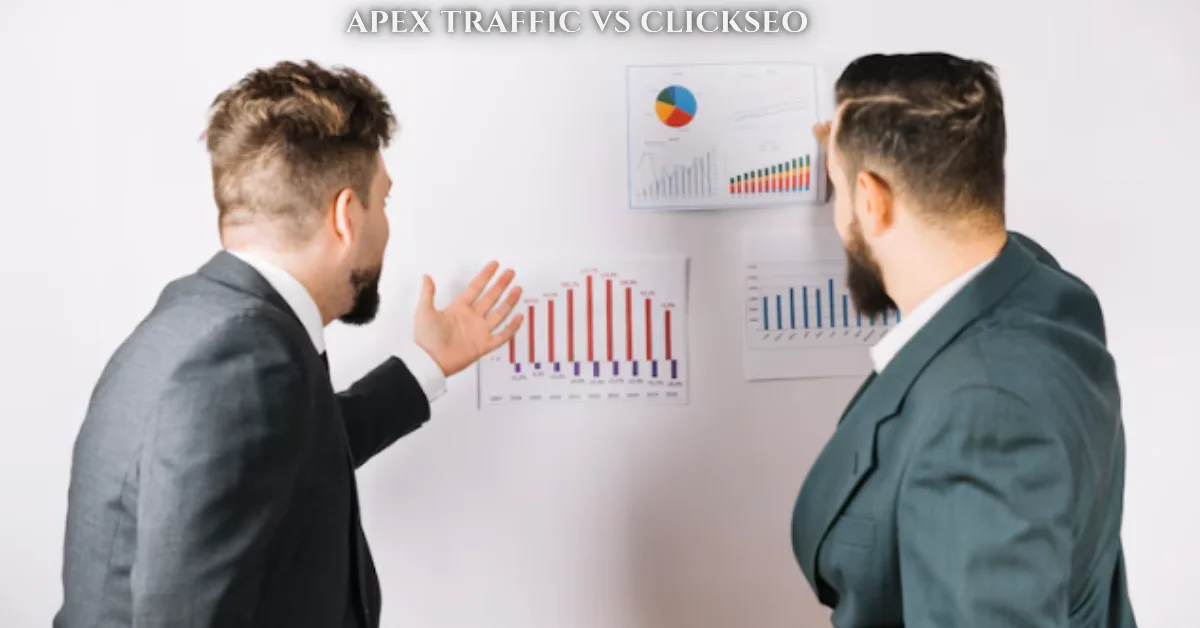SEO
Understanding the Importance of Local SEO in 2024

In today’s digital age, where online presence is crucial for business success, the significance of Local SEO (Search Engine Optimization) has never been more pronounced. As businesses increasingly compete for visibility in search engine results, particularly on a local level, the strategies and techniques involved in Local SEO have evolved, making it a critical aspect of any business’s marketing plan. By 2024, Local SEO has become a cornerstone for companies aiming to connect with local customers, improve online visibility, and drive foot traffic to their physical locations. This article delves into the importance of Local SEO in 2024, exploring why it’s essential, how it works, and what businesses need to do to stay ahead of the curve.
Why Local SEO Matters More Than Ever
The rise of mobile and voice search has revolutionized how consumers find businesses. With the advent of smartphones, tablets, and smart speakers, consumers are now more likely to search for products and services ” near me” than ever before. This trend has made Local SEO a critical component of any business’s marketing strategy.
Local SEO is optimizing a website to rank higher in local search results. It involves various strategies, including optimizing Google My Business (GMB) profiles, creating localized content, obtaining local backlinks, and ensuring consistent Name, Address, and Phone number (NAP) information across all platforms. The goal is to increase a business’s visibility for geographically related searches, thereby driving more traffic and, ultimately, more sales.
In 2024, the emphasis on Local SEO has intensified due to the growing reliance on mobile devices. Consumers use their smartphones to search for everything from restaurants to service providers while on the go. If your business is optimized for local search, you can avoid missing out on many potential customers ready to purchase or visit a store.
The Role of Google My Business in Local SEO
Google My Business (GMB) remains a crucial tool in Local SEO. A well-optimized GMB profile is often a potential customer’s first impression of your business. It displays essential information such as business hours, location, reviews, and popular visiting times. Ensuring your GMB profile is complete and regularly updated increases the chances of appearing in Google’s Local Pack, the map section of the search results that highlights nearby businesses.
In 2024, Google continues to refine how it ranks local businesses, placing more importance on the accuracy and completeness of GMB profiles. Features such as Q&A, Google Posts, and attributes (like “Black-owned” or “LGBTQ-friendly”) have become more influential in determining a business’s ranking in local searches. Moreover, companies that actively manage their GMB profiles, respond to reviews, and engage with customers through posts will likely see better rankings and increased visibility.
The Importance of Localized Content
Content remains king in the realm of SEO, which also holds true for Local SEO. In 2024, creating localized content has become a powerful way to connect with local audiences. This involves crafting blog posts, articles, and other content that speaks directly to the community, addresses local issues, or highlights local events. By doing so, businesses can build a stronger connection with local customers, which can result in increased trust and loyalty.
Additionally, localized content can help businesses rank for long-tail keywords specific to a particular area. For example, a bakery in Miami might write a blog post about “The Best Local Ingredients for Cuban Pastries in Miami.” This type of content provides value to the reader. It signals to search engines that the business is relevant to local searches, thereby improving its chances of appearing in the local search results.
Backlinks and Citations: Building Local Authority
Backlinks and citations are another critical aspect of Local SEO. Backlinks are links from other websites that point to your site. At the same time, citations refer to mentions of your business’s NAP information on other websites, such as directories or social media platforms. Both backlinks and citations help establish your business as a credible and authoritative source within your local community.
In 2024, the quality of backlinks and citations has become more critical than ever. Search engines like Google prioritize links from reputable, local sources over many low-quality links. This means businesses must focus on building relationships with other local businesses, organizations, and influencers to secure high-quality backlinks and citations.
For example, sponsoring a local event, collaborating with local influencers, or being featured in local news articles can all lead to valuable backlinks that boost your Local SEO efforts. Consistency is vital regarding citations, as discrepancies in your NAP information across different platforms can confuse search engines and negatively impact your local rankings.
The Rise of Voice Search and Its Impact on Local SEO
Voice search is another significant trend that has influenced Local SEO in 2024. With the proliferation of smart speakers and voice-activated devices, more consumers are using voice search to find local businesses. Voice searches are more conversational and specific, often including phrases like ” near me” or “open now.”
To capitalize on this trend, businesses must optimize their content for voice search. This includes using natural language, focusing on long-tail keywords, and ensuring that their website is mobile-friendly. Additionally, having a detailed and accurate FAQ section on your website can help answer common voice search queries, increasing the likelihood of your business being featured in voice search results.
Staying Ahead of the Competition
As more businesses recognize the importance of Local SEO, the competition for top spots in local search results has intensified. In 2024, staying ahead of the competition requires a comprehensive and proactive approach to Local SEO. This means regularly updating your GMB profile, creating fresh and relevant localized content, building high-quality backlinks and citations, and staying on top of emerging trends like voice search.
Moreover, businesses should continually monitor their local SEO performance using tools like Google Analytics, Google Search Console, and specialized Local SEO tools. Regular audits help identify areas for improvement and ensure that your business remains competitive in the local search landscape.
Why You Should Partner with a Local SEO Expert
Given the complexities of Local SEO, many businesses opt to partner with a marketing consultant who specializes in this area. One such expert is Washeen SEO, a leading name in local search optimization. With years of experience helping businesses enhance their online presence, Washeen SEO understands the intricacies of Local SEO and how to leverage it to drive actual results.
Washeen SEO offers a comprehensive range of services tailored to meet the unique needs of local businesses. Whether you need help optimizing your GMB profile, creating localized content, or building high-quality backlinks, Washeen SEO has the expertise to guide you. By working with a seasoned marketing consultant like Washeen SEO, you can ensure that your business stays ahead of the competition and continues to attract local customers in 2024 and beyond.
Conclusion
In conclusion, Local SEO will be more critical than ever in 2024. As consumer behavior continues to evolve, businesses must adapt their strategies to remain visible and competitive in local search results. By optimizing your GMB profile, creating localized content, building local authority, and staying ahead of emerging trends like voice search, you can enhance your local SEO efforts and drive more traffic to your business. And if you’re looking for expert guidance, partnering with a marketing consultant like Washeen SEO can provide you with the tools and strategies needed to succeed in the ever-changing world of local SEO.
SEO
SEO for Startups: Key Considerations

Establishing a strong online presence in the fast-paced world of startups is essential for success. As a new player in the market, your startup needs to be easily discoverable by potential customers, and that’s where search engine optimisation (SEO) comes in.
SEO involves strategies and techniques aimed at improving your website’s visibility on search engines like Google. For startups, mastering it is paramount in gaining traction and attracting customers. Let’s talk about some key considerations for startups looking to leverage SEO effectively. Better keep these in mind as you look for an SEO agency in Sydney.
1. Understanding SEO Basics
At its core, SEO is about making your website more visible to people searching for relevant information online. It involves optimising your website’s content, structure, and other factors to rank higher in search engine results pages (SERPs). Whether it’s for startups or enterprise SEO, understanding how search engines work and what factors influence rankings is crucial for developing an effective SEO strategy.
2. Keyword Research and Targeting
Keyword research is a fundamental aspect of SEO. Startups need to identify the keywords and phrases potential customers are using to search for products or services similar to theirs. By targeting the right keywords, startups can attract relevant traffic to their website and increase the likelihood of conversion.
3. Creating High-Quality Content
Content is king, and that’s something businesses should know by now, right? On that note, startups must focus their efforts on creating quality, relevant content that addresses both the needs and interests of their target audience. This could include blog posts, articles, videos, infographics and more.
By consistently producing valuable content, startups can establish themselves as authorities in their industry and improve their search engine rankings.
4. Optimising Website Structure and Performance
In addition to content, the structure and performance of your website also play a crucial role in SEO. Startups should ensure that their website is user-friendly, mobile-responsive and loads quickly. This not only improves the user experience but also signals to search engines that your site is trustworthy and authoritative.
5. Building Quality Backlinks
Backlinks, which are links from other websites to your own, are a crucial SEO ranking factor. Startups should focus on building high-quality backlinks from reputable sources within their industry. This could involve reaching out to industry influencers, guest blogging on relevant websites or participating in online communities and forums.
6. Monitoring and Adaptation
SEO is not a one-time effort but an ongoing process. Startups should regularly monitor their website’s performance, track changes in search engine algorithms and adapt their SEO strategy accordingly. By staying informed and agile, startups can maintain and improve their search engine rankings over time.
Summary
SEO is a powerful tool for startups looking to establish a strong online presence and attract more customers. By understanding the basics of SEO, conducting keyword research, creating high-quality content, optimising website structure and performance, building quality backlinks and monitoring their progress, startups can set themselves up for success in the competitive digital landscape.
If you’re a startup owner, it’s best to invest more time and effort into SEO to increase its visibility, drive traffic to their website and ultimately grow your business.
SEO
Apex Traffic vs ClickSEO: Full Review & Comparison

Introduction to Apex Traffic vs ClickSEO
In today’s digital landscape, driving traffic and boosting visibility is essential for online success. Two leading tools offering these services are Apex Traffic vs ClickSEO. While both claim to enhance your web presence, each focuses on different strategies—Apex Traffic aims to increase visits directly, while ClickSEO enhances search engine rankings through SEO optimization.
This detailed comparison explores their features, pricing, user reviews, and suitability to help you decide which platform aligns better with your goals.
Features of Apex Traffic
Apex Traffic is geared toward businesses wanting direct, high-volume traffic. It offers:
- Advanced targeting based on demographics and interests
- Real-time analytics for campaign performance
- User-friendly interface suitable for beginners
- Multiple ad formats including banners and native ads
- 24/7 customer support for issue resolution
This platform is ideal for marketers who prioritize immediate results through targeted traffic delivery.
Features of ClickSEO
ClickSEO focuses on long-term SEO strategies that build sustainable visibility. Its core features include:
- Keyword analysis to find and target high-ranking terms
- In-depth SEO audits that identify optimization areas
- Backlink tracking to measure link-building effectiveness
- Competitor analysis for better content strategies
- Intuitive dashboard for easy access and monitoring
ClickSEO is perfect for businesses seeking long-term growth via content and SEO performance.
Pricing Plans and Package Comparison
Apex Traffic offers tiered pricing based on the amount of traffic purchased. This is ideal for flexible budgets and short-term needs.
ClickSEO structures its pricing around full-service SEO bundles. These include audits, keyword reports, and performance tracking, which may cost more but deliver broader optimization.
Both platforms may offer promotions or discounts for longer-term commitments.
User Reviews and Testimonials
Apex Traffic is appreciated for its fast setup and real-time traffic delivery. Users note its simplicity and reliable support, although some mention a lack of deeper SEO tools.
ClickSEO receives praise for its comprehensive audit tools and effective SEO planning. Many users report improved search rankings over time, though a few express concern about delayed support responses.
These testimonials help clarify which tool aligns better with individual needs and expectations.
Pros and Cons of Each Platform
Apex Traffic Pros
- Instant traffic delivery
- Intuitive and beginner-friendly interface
- Strong real-time analytics
Apex Traffic Cons
- Limited SEO features
- May not support long-term ranking goals
ClickSEO Pros
- Detailed SEO insights and reports
- Strong keyword and competitor analysis tools
- Designed for long-term organic growth
ClickSEO Cons
- Slower customer support in some cases
- Higher initial pricing
Which One Is Right for You?
Choose Apex Traffic if:
- You want fast traffic and visibility
- You are running time-sensitive promotions
- Paid traffic fits into your current marketing goals
Choose ClickSEO if:
- You’re building long-term search engine ranking
- Your strategy revolves around organic content
- You want deeper SEO diagnostics and suggestions
Conclusion
When comparing Apex Traffic vs ClickSEO, each platform provides a valuable approach to online marketing.
Apex Traffic focuses on quick visibility through paid visitor delivery and easy setup. It’s ideal for businesses that want fast results.
ClickSEO, however, is better suited for those interested in long-term success. With tools that dig into analytics, competition, and content, ClickSEO helps you rank and grow over time.
The right choice depends on your goals—whether you need instant traffic or a long-term SEO strategy. Evaluate what matters most to your brand, and you’ll be on the right track.
ALSO READ: Unlocking Success: Enhancing Your Website Ranking with an SEO Consultant
FAQs
What is the main difference between Apex Traffic vs ClickSEO?
Apex Traffic focuses on generating immediate website traffic, while ClickSEO specializes in improving long-term organic search rankings through SEO tools.
Is Apex Traffic suitable for SEO?
No, Apex Traffic mainly deals with traffic delivery and does not offer comprehensive SEO features like keyword research or site audits.
Can beginners use ClickSEO effectively?
Yes, ClickSEO’s dashboard is beginner-friendly and the tools are designed to guide users through SEO optimization without needing expert knowledge.
Which service is more affordable for small businesses?
Apex Traffic is usually more affordable upfront for short-term campaigns. ClickSEO offers more value for businesses aiming for long-term organic growth.
Can I use Apex Traffic vs ClickSEO together?
Yes, many businesses use Apex Traffic for immediate visibility and ClickSEO to support sustainable long-term growth in search engine results.
SEO
Kirill Yurovskiy: The Emergence of Targeted Advertising on Social Media

In the modern landscape, the tapestry of advertising weaves itself predominantly through the channels of social media. These platforms, designed initially for connection, now serve as the backbone of targeted marketing efforts. They collect vast reservoirs of data, each user contributing to the whole through every click, like, and share. This data becomes the currency of advertisers, each piece a clue into the desires and behaviors of consumers.
Precision and Personalization in Advertising
At the heart of this evolution lies the raw efficiency of social media in delivering tailored messages. The process begins quietly, in the seemingly innocuous daily interactions of the platform’s users. Each action, whether it be a post shared, a status updated, or a page followed, is a voluntary submission into this grand database. The platforms analyze these interactions, constructing detailed profiles that map out individual preferences and inclinations.
The power of targeted advertising lies in its precision. Where once advertisers cast wide nets, hoping to catch a few relevant consumers among many, they now wield finely-tuned instruments, designed to target individuals with surgical accuracy. This shift is profound, transforming the advertisement from a broad-spectrum broadcast into a whisper directly into the ear of those most likely to listen. Find out more here kirill-yurovskiy-jr.co.uk
Privacy Concerns and Consumer Awareness
Yet, this efficiency comes with questions of privacy and consent. As consumers, our data trails are long and often invisible to us. We do not see the myriad ways in which our information is harvested, shared, and utilized for profit. This hidden exchange has sparked debates about the ethics of such practices. Are users truly aware of the extent to which their data is used? Have they consented to this level of scrutiny, or have they been swept along by the platform’s currents, unaware of the depth at which they are monitored?
The Evolving Consumer-Advertiser Relationship
The relationship between consumer and advertiser has always been one of pursuit and evasion. In the age of social media, the dynamic intensifies. Advertisers pursue ever more detailed data to refine their targeting strategies, while consumers seek to reclaim privacy, often retreating behind ad blockers or adjusting their platform settings to limit exposure.
Despite these efforts, the effectiveness of targeted ads continues to grow. They are crafted to appeal not just to a demographic but to the individual, resonating with personal experiences and desires. This resonance is the key to their success. An ad that feels personally relevant is more likely to engage, to compel action, and to convert interest into purchase.
Seamless Integration and Strategic Placement
The strategic placement of these ads further enhances their impact. They are embedded seamlessly into feeds, designed to appear as though part of the natural flow of content. This subtlety blurs the lines between content and commerce, between conversation and pitch. It is here, in the blending of the personal and the promotional, that targeted ads find their most fertile ground.
Algorithmic Advancements and Global Reach
Social media platforms, recognizing their role in this ecosystem, continue to refine their algorithms. The goal is to increase user engagement, keeping eyes on screens longer, which in turn increases the value of the space they sell to advertisers. This cycle of engagement and advertisement is self-perpetuating, each feeding into and expanding the other.
The global scale of social media magnifies the impact of targeted advertising. A single campaign can reach across continents, translated into dozens of languages, each version tailored not just to the language but to the cultural context of its audience. This global reach is unprecedented, the power of a message amplified by the scale of its distribution.
Legal and Ethical Challenges
Yet, as the scope of targeting and the depth of data collection expand, so too does the backlash. Concerns over data privacy have led to legal and regulatory challenges, reshaping the landscape in which these platforms operate. Regulations like the GDPR in Europe and similar laws elsewhere attempt to balance the scales, giving users more control over their data and more transparency about its use.
The Dual Role of Social Media in Modern Commerce
In the grand narrative of commerce, social media platforms have become both stage and actor, transforming targeted advertising from a tool of business into a defining element of the digital era. The role they play is complex, interwoven with issues of technology, psychology, ethics, and law. Each post, like, and share feeds into this system, a system that reflects and shapes the desires and behaviors of its users, crafting from them a mirror in which we see not just what we are, but what we might buy.

 ENTERTAINMENT4 days ago
ENTERTAINMENT4 days agoExploring the Kristen Archives: A Treasure Trove of Erotica and More

 ENTERTAINMENT1 day ago
ENTERTAINMENT1 day agoKiss KH: The Streaming Platform Redefining Digital Engagement and Cultural Currents

 EDUCATION1 day ago
EDUCATION1 day agoLingrohub Platform: A Complete Student Access Guide

 LIFESTYLE4 months ago
LIFESTYLE4 months agoThe Disciplinary Wives Club: Spanking for Love, Not Punishment

 TECHNOLOGY24 hours ago
TECHNOLOGY24 hours agoCasibom: The Digital Alchemy Reshaping Systems, Society, and Self

 TECHNOLOGY23 hours ago
TECHNOLOGY23 hours agoSecuring Your Online Presence: The Ultimate Guide to Buying an SSL Certificate

 LIFESTYLE23 hours ago
LIFESTYLE23 hours agoTips for Prolonging the Lifespan of Truck Roll-Up Door Rollers

 TECHNOLOGY4 months ago
TECHNOLOGY4 months agoBlog Arcy Art: Where Architecture Meets Art











